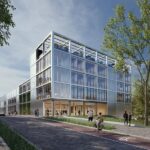Post Capitalist City Architecture Competition, collagelab Design Contest
Post Capitalist City Competition : collagelab Contest
Post Capitalist City Competition
16 Jul 2012
Post Capitalist City Architecture Contest
collagelab Architecture Competition, International
CollageLab launches its 2nd competition on the cycle POST+CAPITALIST City! After 1#SHOP, it’s time to 2#WORK!
Collage Competitions is a cycle of competitions for prospective thinking in terms of urban planning, architecture, political, social and economical spaces in a global scale.
Students, architects, urban planners, designers, artists and all active thinkers are invited to submit their ideas and share their visions to the world.

picture from design contest organisers
In times in which machines are more profitable than men, urban centers adapt their structures towards information and services. But can those new growing sectors satisfy the global demand? How cities will organize themselves through this shift whereas flexibility and competition in work reach a new level?
The psychological dogmas that formed the industrial society many decades ago, such as loyalty and lifelong commitment to an enterprise, were replaced with the fear of losing work, the guilt of not having work, or the question of how far would you go – geographically and ethically – for a job? Does our urban future lie in each becoming self-entrepreneurs, or to all share collective knowledge in forms of Open Source projects? Can we find new ways of producing and working?How will the global enterprise be able to produce sustainable levels of work through motivated workers, when nowadays humans are seen as resources and not workforces? How will the work of the future be measured, when the production of perceived, speculated value has no theoretical limits? Can work finally be released through technology? And finally: What are the possibilities for our cities? Apart from “job-sharing” and co-working spaces, what could be transformed spatially to change towards a sustainable working culture?
For more information, visit www.collagelab.org
Questions Deadline: 1 Aug 2012
Early Birds Registration Deadline: 1 Sep 2012
Submission Deadline: 1 Oct 2012, 23:59 pm, European time (CET)
Results announced: 1 Nov 2012
Entry fee Early Birds (until 01.09.2012): 30 Euros / submission
Entry fee from 01.09.2012 to 01.10.2012: 50 Euros / submission
(No entry fees for participants from selected countries. Details on http://www.collagelab.org/en/post-capitalist-city-work/)
26 Mar 2012
Post Capitalist City Architecture Competition
collagelab Architecture Contest, International
1 Jul 23:59 pm, European time (CET) – submission deadline
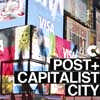
picture from design contest organisers
POST+
With successive declines on the financial markets, recent times have seen a growing interest in the theoretical debate about alternatives to the ongoing capitalist system. Gathering international thinkers from all walks of political life, the diagnosis on the ongoing economic crisis situation tends to demonstrate that the system as it is nowadays needs to be rethought and perhaps re-established globally.
The recent Wall Street protests and the associated developing movements around the world indicates the depth to which the inequality generated by the economic system and the demand for global change has penetrated the popular consciousness. – The financial crisis is no longer a matter for the decision makers and having reached the masses is transforming the political and national – or trans- national – spheres.
At the same time creative alternatives – in trying to deal with the growth of poverty amongst the population – propose new ways of living, celebrating an ideology based on trust, solidarity, community and action.
Cities… Their attractiveness was originally based on the economic opportunities they provided to their inhabitants: job opportunities created a massive influx from the countryside, contributing actively to their spatial transformation by means of increasing population density and growth. However, in a prospective future if attractiveness is no longer necessarily related to profit making – as the symbolic 99% idealized by the “Occupy” movements around the world claim – the question of the future of existing cities is wide open.
WHAT IF… ?
What if the change was tomorrow? What would be the characteristics of a system not based on profit making? What would be the consequences of a new system for the way in which we use urban spaces?
Would cities enter a transformation process, becoming specialized centres in a globalized system? Would the global network of cities tend to erase borders or to affirm and reinforce them? What is (could be) the scale (the impact) of the change?
……………………………………………………………………………………………………………………..
SHOP
[Get, acquire, need, satisfy]
„I did not know that there were no tomatoes in winter, until i got into a bio supermarket. The lady explained to me that winter is not a tomato season. I was ashamed to not have known that.“ (customer in Europe)
As China’s rise of financial power, we find the nowadays-largest shopping mall there in the city of Dongguan. As everywhere in the world, the huge big box contains no windows, no connection between inside and outside, but a thousands of offers and promises for a better life. The whole family can spend their free time inside without a notion of time. Each family member can find his personal pleasure, according to the size of the wallet.
But the rise of the mall seems to be more or less finished in the western world. With the notion of sustainability and the growing precarity in all parts of society people start to begin to search for alternatives and local food markets return to be pleasurable events. With the increasing demand for regional goods we start questioning also the origin of our products; how does the food chains work globally, what are the carbon footprints of our products? Not to forget our questions relating to the development of genetically modified food.
The cry for attention of individual products grew according to the quantity of the markets. Visually we start being unaware of what is advertisement and what is information. Product certificates make it even harder to know if they represent a common interest or if it does not come from the producer itself.
Before we become blind from visual stimulation and things we don’t “need”, we ask ourselves: Can we find new ways of getting to know products and use them? Obviously advertisement and mass- consumption are children of the capitalist system. But are there other ways to produce and consume than the way we are used to now?
In the last centuries we have discovered the advantages of global exchange of goods, but what if we would take a step back and see what we really need: What is it we really need? What could be the concepts for new alternatives? Does our foodculture has to be inevitable linked to consumer culture? Do we necessarily still need to have everything at every time? And finally: What are the possibilities for our cities? Apart from the “urban gardening”, what could be transformed spatially to change towards a conscious behaviour of shopping and consumption culture?
……………………………………………………………………………………………………………………..
>>> Now it’s your turn! Show us your ideas to re-think the shop, the way we consume and a city with another system of shopping culture.
……………………………………………………………………………………………………………………..
Submission requirements
The scale of the project is up to you! One can think about a global solution for urban conditions on a world scale whereas others would rather talk about their own street corner! Both are interesting! The only rule: it must be urban and prospective, according to the main thesis.
The selection criteria will consider the final design proposal as the hypothesis taken by the entrants. As this competition tries to develop critical and concrete ideas to a hypothetical situation, the entrants are invited to define the context (political, economical and geographical, including if needed a time schedule) in which their proposal has to be related to be credible and optimized.
Utopias as dystopias can be considered, as long as the proposals permit to bring original ideas and thoughts according to the statement.
First competition
Launching date: 1 Apr 2012
Questions Deadline: 1 May 2012
Submission Deadline: 1 Jul 2012, 23:59 pm, European time (CET)
Results announced: 1 Aug 2012
The participants are asked to provide:
– up to 5 single A3 images (horizontal – 300 dpi – jpg) representing their ideas in the most efficient way. These images can be collages, maps, plans, pictures, diagrams, 3D representations or any other graphical tool. Each of them must be a unique document, independent and self-explanatory. No special layout is demanded, each sheet contains one scheme / image only.
– a simple text (up to 800 words) has to be attached, in .txt format, explaining the choices and the particularities of the specific site chosen if needed, the prospective context in term of time and space (economically, politically, socially‚…), and the concept of the related project. This text can be in English, French or German. This text will include the title of the project.
– an abstract / resume of the text (up to 200 words), in .txt format, resuming your main idea and concept in ENGLISH. This abstract will include the title of the project. Each document shall not exceed the size limit of 5 Mo.
The submissions are due digitally through the link provided to the participants by email after registration and payment of the registration fees.
Jury
The Jury is composed by the editorial board of Collage Lab and at least one additional invited personality (architect, artist, curator or philosopher) with significant influence on architecture and urbanism and specific interest on the current topic reliable to their current work. The invited jury is to be determined.
Prices
Entry fee: 30 Euros / submission
A selection of entries will be featured on the website and published by our media partners, online magazines and other publications.
The amount of the prizes is depending on the amount of participants. The more participants you are, the more you can win. 2 different prizes will be distinguished and the repartition operated as following:
1st prize: 65% of the total amount
2nd prize: 35% of the total amount
Honorable mentions may be provided as special prices depending on our generous partners and sponsors. Collage Lab reserves the right to modify the submission requirements at any time.
……………………………………………………………………………………………………………………..
All submissions must respect strictly the anonymity and not contain any names, symbols, logos or any signs permitting to recognize the identity of the entrant. Any submission not respecting this basic rule will not be considered as a valid proposal and therefore be excluded from the competition.
The submitted files must be named after the registration code chosen by the entrants (2 Letters – 3 Numbers. Example: AA000) as following:
code_text.txt
code_resume.txt
code_image1.jpg
code_image2.jpg
code_image3.jpg
code_image4.jpg
code_image5.jpg
Entries must not have been published or proposed previously to any other competition.
Participants guarantee to own all copyrights for their proposal including all the single documents of their submission (such as pictures, datas, texts‚…). By participating, the entrants accept the publication of their proposal without any further authorization: Entrants keep the authorship and the intellectual rights and will always be named in every publication. Any further indemnity would be given for the eventual future publication or exhibition of the proposals submitted.
Post Capitalist City Architecture Competition image / information from collagelab
Location: New York, NY, USA
Architecture Competitions – Selection
Bridging Prague Architecture Competition, Czech Republic
reSITE / Skanska Design Contest
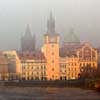
picture from design contest organisers
Bridging Prague Architecture Competition
West Kowloon Cultural Complex Design Competition
Design Contest for its First Arts Venue
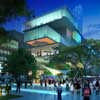
image : Foster + Partners
West Kowloon Architecture Competition
Buenos Aires Architectural Competition
[AC-CA] Architecture Contest
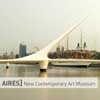
image from design contest organisers
Architecture Competition
Comments / photos for the Post Capitalist City Architecture Competition – collagelab Architecture Contest page welcome

